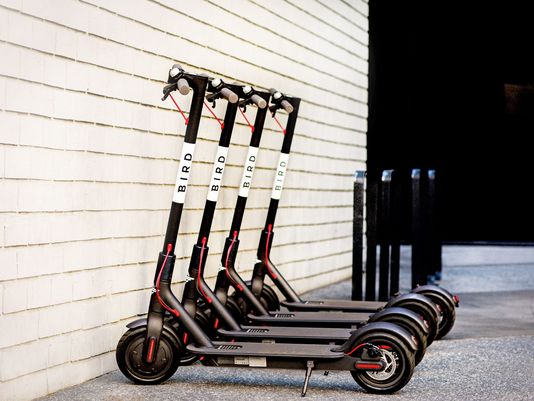When electric scooter start-up companies Bird and Lime arrived Columbus earlier this month, it was unclear whether and how this new mode of transportation would conform to Ohio motor vehicle laws and regulations. We now have an answer.
On August 28, the City of Columbus Department of Public Safety announced rules and regulations for the “Shared Mobility Devices.” Columbus Mayor Andrew J. Ginther tasked the city’s Department of Public Service with developing “common-sense guidelines to manage right of way concerns as a first step to a thorough and thoughtful plan that works in our city.” The Department of Public Service collaborated with the Department of Public Safety, the City Attorney’s Office, and Smart Columbus to create these guidelines. Companies like Bird and Lime will have 30 days to come into compliance with the new rules.
The Public Service Department published a news release detailing the following regulations:
- Companies must obtain permits from the department to operate in the city.
- No more than 8 permits will be granted.
- The scooters must be parked in an upright position.
- The scooters cannot be parked in the vehicle portions of the street, in parking spots, or in loading zones.
- The scooters cannot be parked in doorways, on fire escapes, inside bus shelters, in driveways, or on unauthorized private property or unapproved non-public spaces.
- The City of Columbus may designate parking/staging spots for the scooters.
- Each company will be limited to 500 scooters. The Director of Public Service has the authority to increase this number based on demand and usage.
- The scooters must not be able to go faster than 15 MPH.
- Companies are required to educate riders on responsible and legal use of their scooters.
- Companies must deploy at least some of the scooters in neighborhoods outside of the Central Business District.
- Companies must allow access to those without credit cards.
While these regulations provide guidelines to law enforcement and to companies like Bird and Lime, they are not yet official law. Mayor Ginther’s administration intends to draft legislation focused on the operation of the devices. Any changes to the city’s code, however, must be approved by the Columbus City Council, which is set to return from recess on September 17, 2018.
Until then, the Department of Public Service’s new regulations will hopefully encourage safer use of the scooters and consistent law enforcement while protecting the interests of innovative start-up companies in Columbus.

